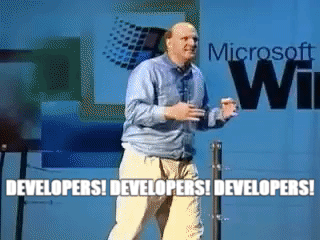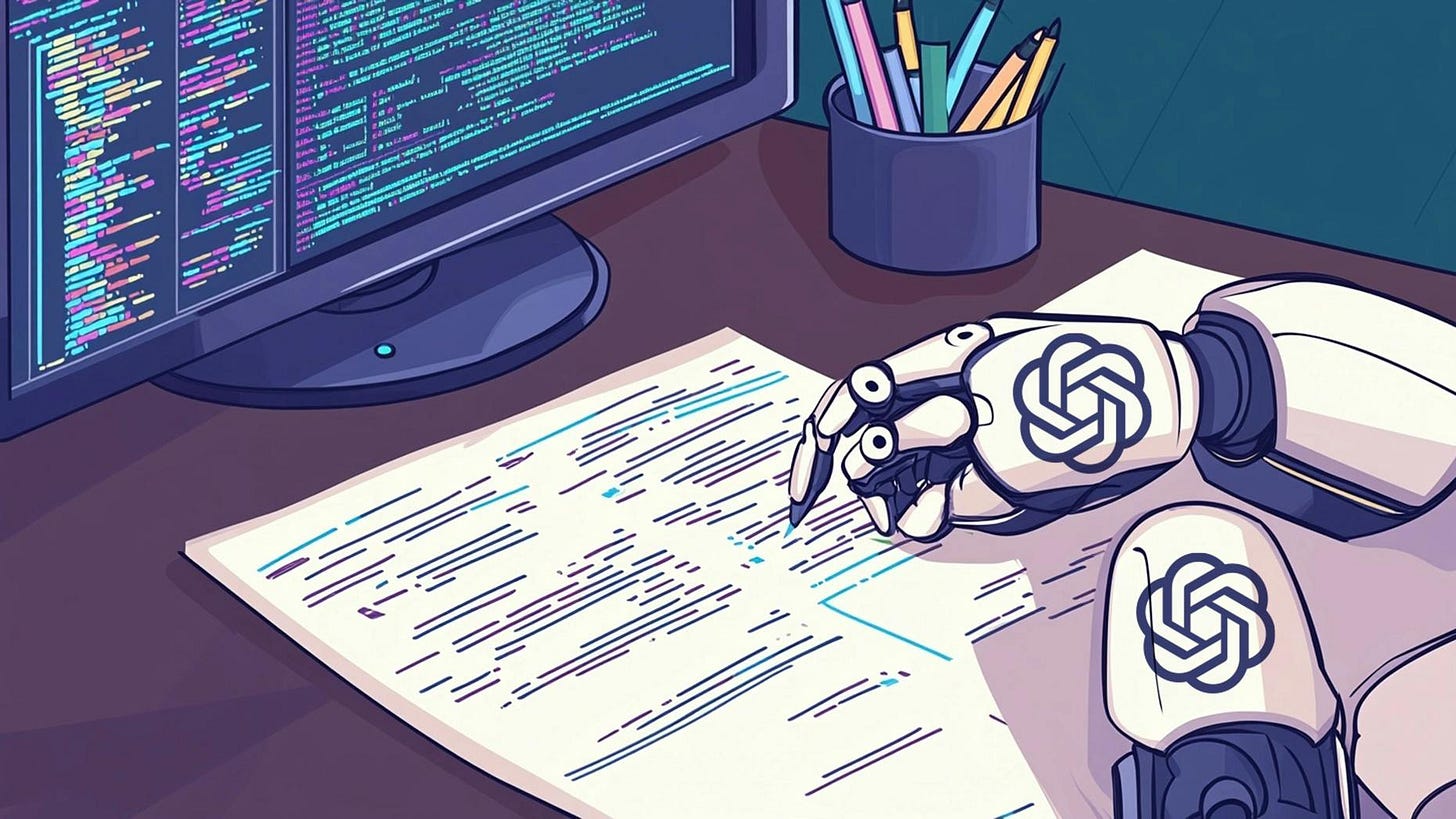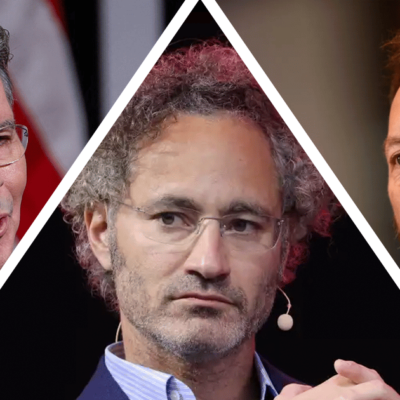
AI: Developers loving AI 'Vibe Coding'. RTZ #661
I’ve long emphasized that LLM AIs first beneficiaries are software developers themselves. Software platforms and applications enhanced by AIs, are by their form best suited for the regimented and rules based work of programming, when the models are trained on copious amounts of developer code from all sources on the internet.
Indeed, the most successful AI applications at this early stage of AI Tech Wave are ones designed for developers. And a reason why the top AI developers like OpenAI, Microsoft with Copilot etc., are first focused on AI for coders.
So it follows that one of the latest AI memes, ‘Vibe Coding’ comes from the world of developers.
The Information lays it out in “Vibe Coding Explained”:
“Vibe coding arrives in our lexicon apparently from Andrej Karpathy, a former OpenAI and Tesla executive, who seems to have coined the phrase in a Feb. 2 tweet in which he described “a new kind of coding I call ‘vibe coding,’ where you fully give into the vibes, embrace exponentials”—the rapid changes in AI’s ability to code—“and forget that the code even exists.”
“Karpathy went on to discuss how he’d been coding lately with AI from Anthropic and Anysphere, a fast-growing startup that makes a popular code-editing tool called Cursor, and those efforts didn’t require him to interact very much with the code itself. Instead, he could prompt the AI and let it do much of the grunt work.”
He goes onto the describe the casual nature of it all:
“I ask for the dumbest things like ‘decrease the padding on the sidebar by half’ because I’m too lazy to find it…When I get error messages I just copy paste them in with no comment, usually that fixes it,” Karpathy wrote. “I just see stuff, say stuff, run stuff, and copy paste stuff, and it mostly works.”
“People have been using AI chatbots for help with coding tasks for some time, but AI has gotten much better at it recently thanks to the development of new reasoning models as well as agentic AI programs—both significant improvements in how AI can think through problems and put a plan into action.”
But the term and the current state of the technology has its limits:
“Vibe coding sounds great—almost like AI has advanced to the point where I can go to Claude Code and ask it to “make an Age of Empires-style game that focuses on Renaissance Europe” and expect it to come back with something I can just drag onto my desktop and play. That’s not the case. While AI has gotten much more sophisticated in coding lately, the tools are just that—tools. They’re best at making experienced developers more efficient and particularly useful at quickly getting together code that can get demoed and then further refined. In the hands of a novice coder, they’re practically useless. (I know—I tried.)”
“You have to have at least a high level concept of what you want your code to do,” said Bojan Tunguz, a consultant and former Nvidia software engineer who has been vibe coding in his free time lately. He too has seen projects that might’ve taken weeks get condensed to a matter of days. “I wouldn’t recommend it to someone who has never coded at all.”
And it’s a long way from doing truly innovative things:
“Think of it this way: Just as AI cannot yet produce a Pulitzer Prize-winning novel, none of the coding AI tools can spontaneously spit out the next Elden Ring or the next great smartphone app. They’re not even nearly as easy to use as, say, Wix’s program for assembling a website. Which means AI is far from ready to erase every coding job out there, but it is clear that jobs involving the lowest-skill coding work could get squeezed out. One end result: Software engineering may no longer be as surefire a path toward universal job security and a mid-six-figures salary as it has been.”
The context properly framed and contained gives a good sense of the ‘vibe’ true coders get using AI in their work. Almost a ‘Tony Stark’ sense of empowerment:
“““It was like strapping on an Iron Man suit and flying around,” said Jon Stokes, co-founder of Symbolic AI. “I felt like Tony Stark—it was insane.”
“Stokes was recounting his recent two-day binge using Claude Code to work on a project for his San Francisco-based startup. Like many techies lately, he was “vibe coding,” a buzzy phrase that describes someone prompting artificial intelligence with natural language to create and examine code—just as someone else might ask AI to write an email or summarize research. Stokes estimates Claude Code, a tool released just a couple weeks ago by Anthropic, dramatically reduced the amount of time he spent on his coding project: What took him about two days would’ve taken him several weeks without Claude Code, he said. It went fast—Tony Stark fast.”
Some day, billions of mainstream users will get this sense of daily AI driven empowerment for their daily tasks, that millions of coders currently do. Then maybe the phrase ‘vibe working’ may become a new meme.
Until then, let’s applaud the ‘vibe coding’ for the developers in this AI Tech Wave . Stay tuned.
(NOTE: The discussions here are for information purposes only, and not meant as investment advice at any time. Thanks for joining us here)










